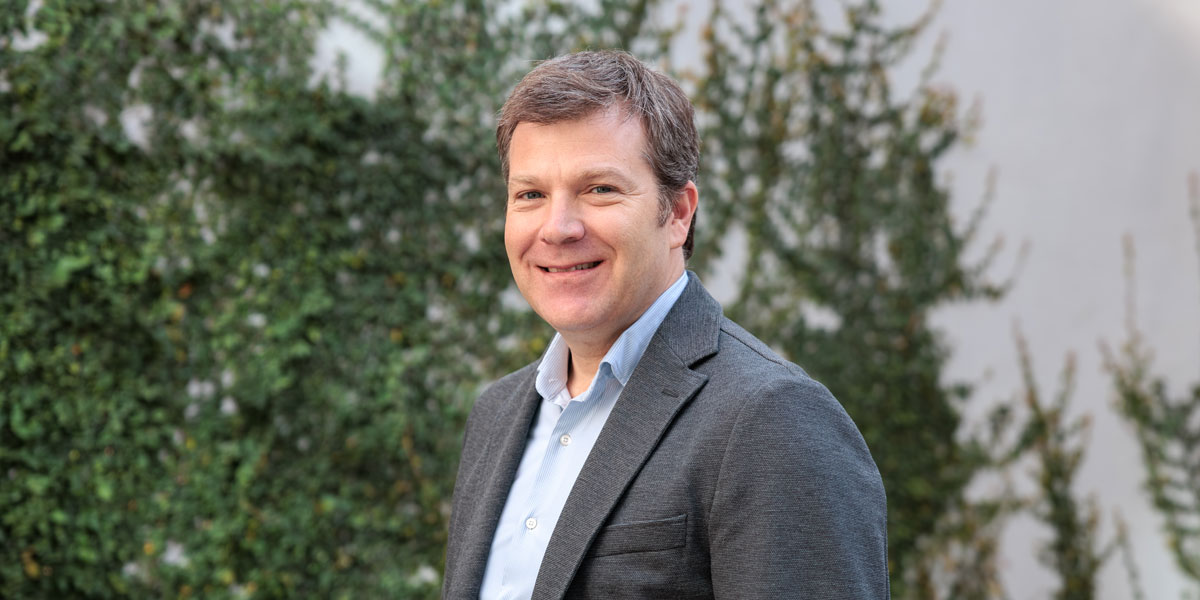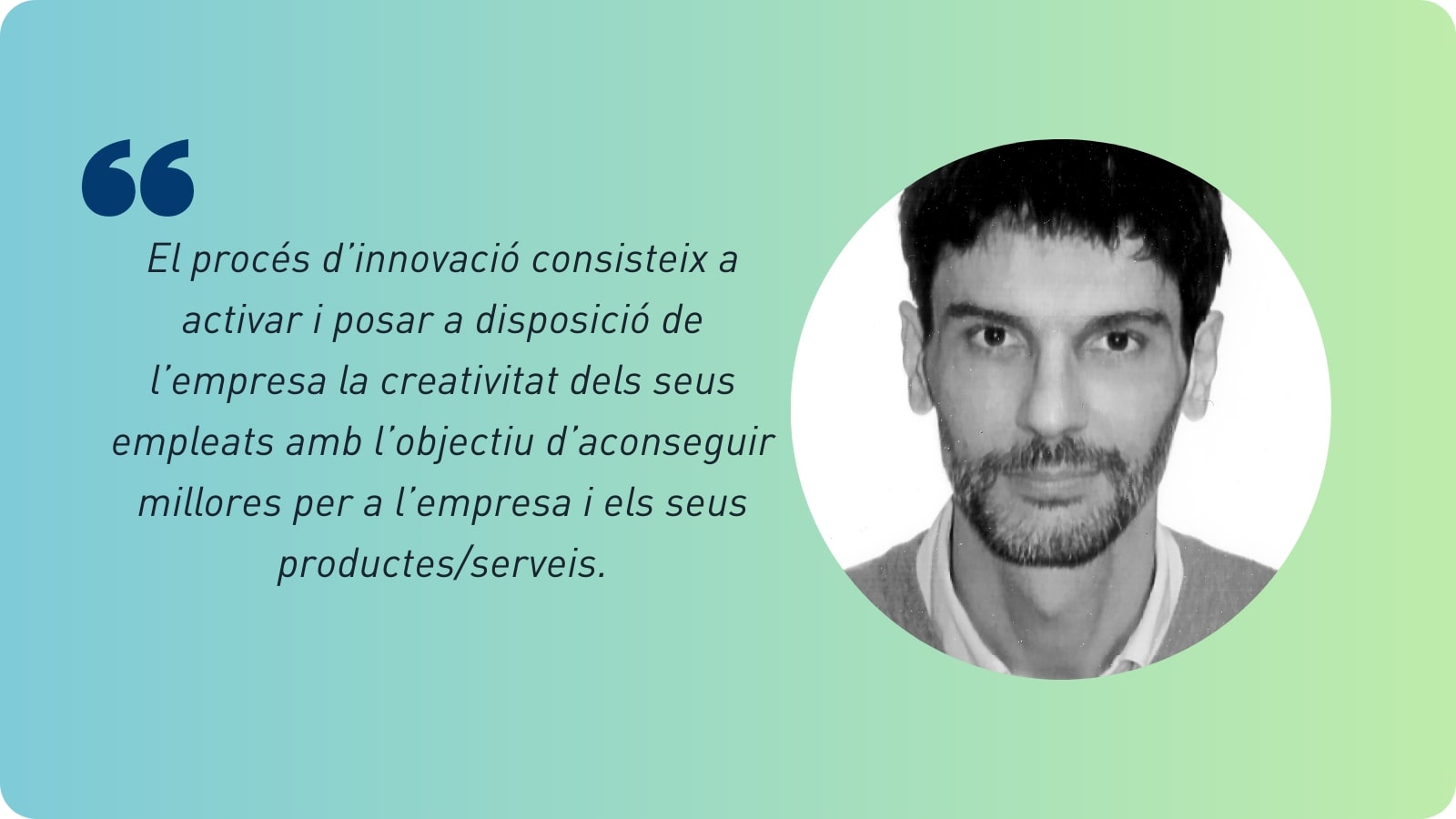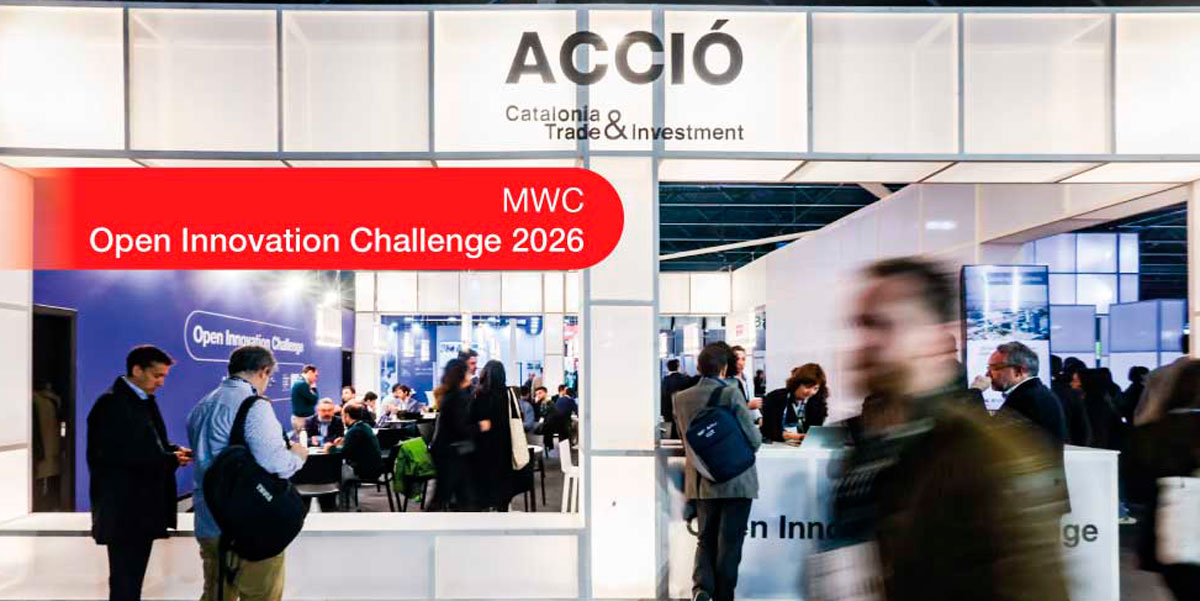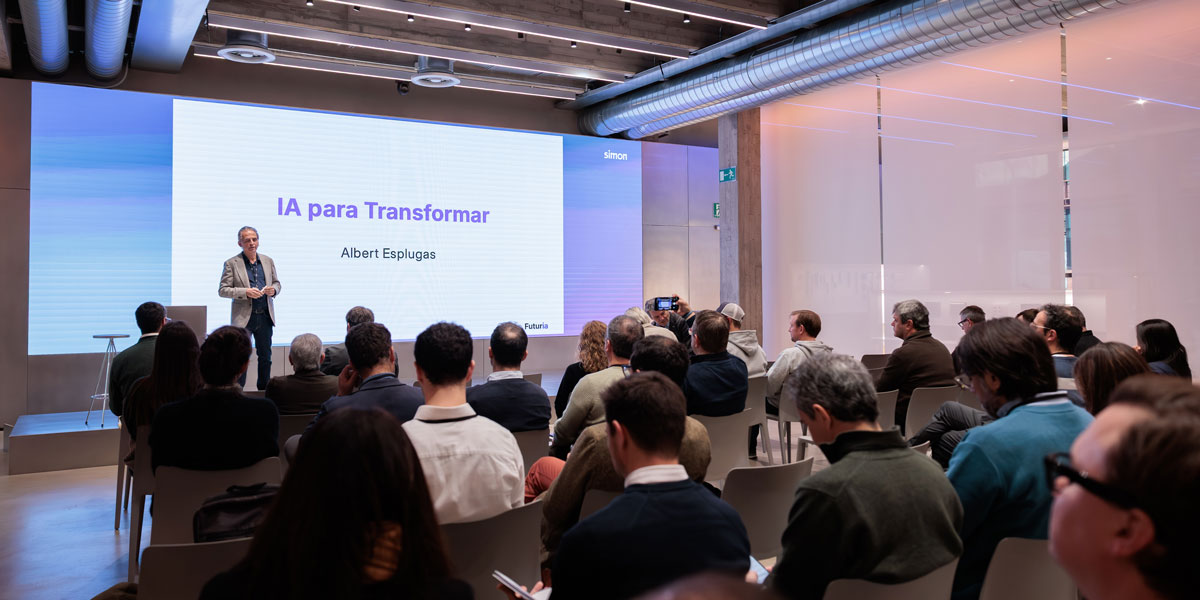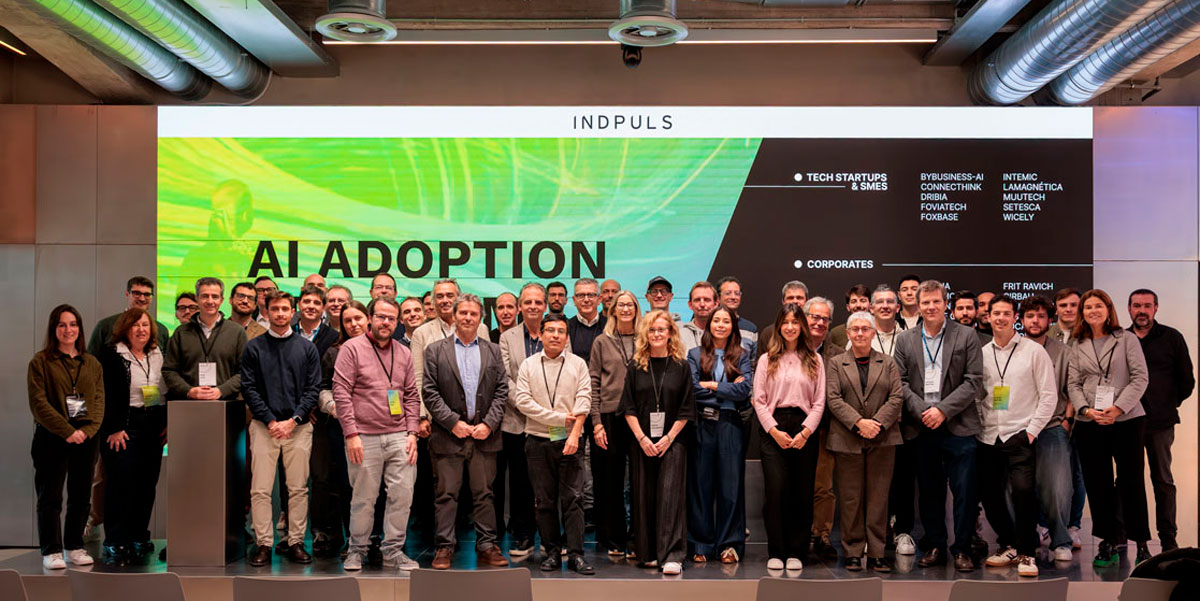Interview with Eloi Planes, Executive Chairman of Fluidra.
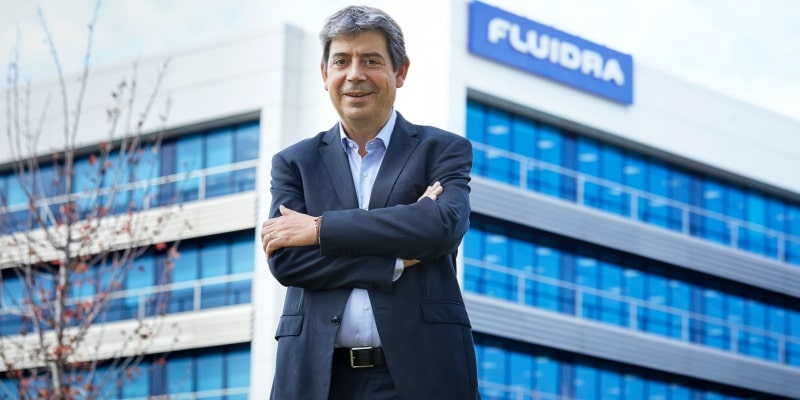
Fluidra is the world’s leading equipment and connected solutions company for the pool and wellness sector, holding the first or second position in key markets. Currently, it is part of the IBEX 35, the benchmark index of the Spanish stock exchange, and the FTSE4Good Index Series, a reference index in terms of sustainability. Fluidra stands out for its wide range of innovative and connected products and services, operating in more than 47 countries. Innovation is a fundamental pillar of its strategy, manifested in the commitment to creating Fluidra LAB, the company’s Open Innovation and Corporate Venturing program; in the development of the intrapreneurship program ‘Fluidra Innovation Challenge’; and in fostering a culture of innovation both internally and with its collaborators.
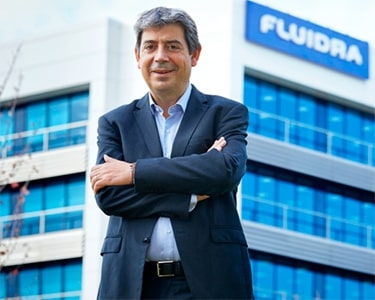
Eloi Planes has been the company’s executive chairman since 2006. Trained as an engineer and driven by a passion for poetry, he grew up with Fluidra, which now combines the values of a family business with the ambition and opportunities of being a global leader. He is also the President of the Barcelona International Pool Salon and the Catalunya Cultura Foundation and a board member of Dispur, S.L.
We talked to Eloi Planes, in a new INDPULSTALKS (Interview series with the INDPULS community), about the company’s commitment to open innovation, the challenges of collaborative innovation, and how he envisions the industry’s future.
What role does collaborative innovation play in your company?
At Fluidra, collaborative innovation is a fundamental pillar of our strategy to stay at the forefront of the pool and wellness sector. We firmly believe in the power of uniting internal and external efforts and knowledge to drive the development of advanced products and solutions.
By closely collaborating with our partners, customers, and other market players, Fluidra can better understand the market’s changing needs and respond to them proactively and more effectively.
What strategies and tools does Fluidra use to identify innovation opportunities and engage employees in the idea-generation process?
On the one hand, our commitment to Open Innovation has always been prominent. It is manifested through Fluidra LAB, our open innovation and corporate venturing program, where we centralize activities for seeking external solutions and opportunities that help drive innovation. It serves as a meeting point between Fluidra and external innovation agents. A clear example is our collaboration with INDPULS, which provides us the means to find the innovative solutions we seek in our sector. Additionally, it offers an environment where we can share enriching experiences with other partners and the risks associated with innovation.
On the other hand, internally, there are two main paths for Internal Innovation: our intrapreneurship program called “Fluidra Innovation Challenge,” where Fluidra offers all its professionals the opportunity to contribute their ideas and turn them into a Fluidra product or service based on challenges proposed by the company.
Finally, we like to promote a culture of internal innovation. Beyond “innovation” being one of our corporate values, we encourage the participation of our employees in various internal initiatives, such as different innovation talks and training sessions. Additionally, it’s worth noting that our sales and marketing departments always gather feedback on our products, as well as the current needs and demands of the market, which are then conveyed to various R&D teams.
“Beyond ‘innovation’ being one of our corporate values, we like to encourage the participation of our collaborators in various internal initiatives.” – Eloi Planes, Executive Chairman of Fluidra
What are the most common challenges that Fluidra faces when promoting collaborative innovation in today’s business environment?
Promoting collaborative innovation in today’s business environment presents several challenges:
Firstly, one of the main challenges is aligning goals and expectations among different partners. Each organization or individual involved in a collaborative project may have its own goals and priorities, and harmonizing these different perspectives is essential for the project’s success.
Another challenge is intellectual property management: in collaborative projects, it is crucial to establish clear agreements on how intellectual property rights generated will be shared and protected.
It is important to note that effective communication is also a challenge. Collaborative innovation often involves multidisciplinary and multicultural teams, requiring robust communication strategies to ensure all participants are on the same page and can collaborate effectively.
Lastly, keeping pace with the rapid evolution of technology and market expectations is a constant challenge. Collaborative innovation must be agile and adaptable to respond quickly to changes in the business environment.
At Fluidra, we address these challenges proactively and strategically, ensuring that collaborative innovation remains an integral part of our culture and business strategy.
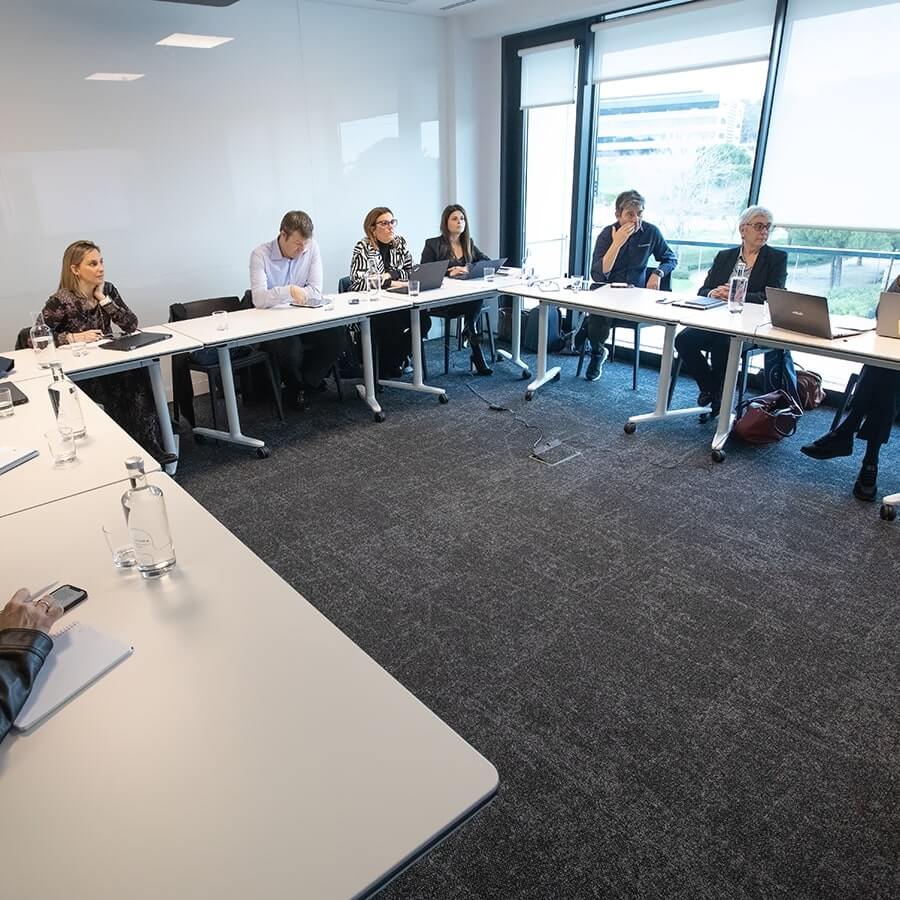
“INDPULS provides us with the means to find the innovative solutions we seek in our sector. It also offers an environment where we can share enriching experiences with other partners, as well as the risks associated with innovation.”
– Eloi Planes
How do you envision the future of the industrial ecosystem?
I envision the future of the industrial ecosystem marked by increased integration of advanced and sustainable technologies. Digitization, automation, and artificial intelligence will play crucial roles in transforming industrial processes, making them more efficient, precise, and sustainable. In the pool and wellness sector, this could translate into smarter and automated water maintenance and management systems, improving the user experience and reducing environmental impact.
Sustainability will be another significant cornerstone in the future of the industrial ecosystem. Companies will increasingly focus on solutions that minimize their carbon footprint, using renewable energy and recycled or biodegradable materials. This could mean developing more water and energy-efficient pools and equipment in our field.
Furthermore, I anticipate increased collaboration and integration across industries and sectors. Collaborative innovation across different fields can lead to disruptive solutions and more extraordinary adaptability in global challenges such as climate change.
Finally, the focus on the customer experience will intensify. Personalization and adaptability of products to the specific needs of users will be key aspects. At Fluidra, this could involve pool systems that better adapt to individual lifestyles and user preferences.
In summary, the future of the industrial ecosystem will be defined by technological innovation, sustainability, cross-sector collaboration, and a customer-centric approach, which Fluidra has already incorporated into its long-term strategy.
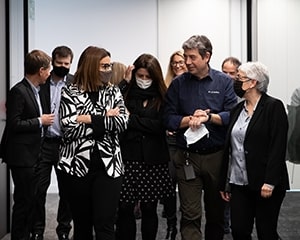
Why did you decide to be part of an ecosystem like INDPULS?
I firmly believe that collaborative environments where companies share current challenges and learn from each other are essential to stay updated and achieve the proposed business objectives.
This interview is part of the INDPULSTALKS series, our space for conversation with the INDPULS community, where we address a variety of topics related to the industrial sector, innovation, sustainability, and management, among other relevant areas.
